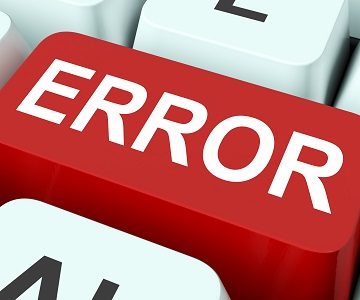Probably the most common reason to file Chapter 13 bankruptcy is if you get behind in your secured debt and are at risk of losing your home or other secured property. Chapter 13 is an effective tool to stop foreclosures and repossessions. Another reason to file Chapter 13 bankruptcy is if you have non-exempt assets … Read more
The most common objection in your Chapter 13 bankruptcy plan is that the plan is not in good faith. This is where the creditor feels you either are unable to make the payments or that you were not honest in your filing. Not Feasible The second most common objection from a creditor is that the … Read more
The meeting of the creditors, often called the 341 meeting, will be held within 40 days after you file your bankruptcy petition. Most bankruptcy courts hold the meeting of the creditors just one or two days a month. Many other people will be at the federal courthouse at the same time you are, typically everyone … Read more
When you are filing your paperwork to the Federal bankruptcy court, you will need to follow the same procedures. Each district may want different forms, and in different orders, so you will want to ask your bankruptcy attorney or contact your local district to get the most up to date information. You can find the … Read more
The cornerstone of Chapter 13 bankruptcy is your repayment plan. This type of bankruptcy allows you to keep your possessions while giving you time to catch up on your debt such as your home or your vehicle. The basic rules are the same for making a plan in its simplest form, how much you make, … Read more
Chapter 13 bankruptcy is often called a reorganization bankruptcy. Chapter 13 is different from a Chapter 7 bankruptcy in that you keep all of your assets and pay back past due payments on secured items such as your home or your vehicle. In a Chapter 13 bankruptcy, you submit a plan to the bankruptcy court … Read more
When you are overwhelmed in debt, struggling to make ends meet, often times you consider bankruptcy. If you are to that point in your financial crisis, you may be wondering what type of personal bankruptcy will suit you best. Chapter 13 will be your best option if you have secured creditors that you have been … Read more
Individuals who file for Chapter 13 bankruptcy in Texas sometimes find themselves unable to afford the continuing funding of their Chapter 13 reorganization plan. The US Bankruptcy Code was luckily not created in a vacuum and Congress realized that unexpected emergencies such as unforeseen bills, illness, and loss of employment happen. Because of this realization, … Read more
Running a successful business is difficult, and there can come a time when your sole proprietorship just isn’t realizing the money needed to pay for business operations as well as your own salary to pay for debts and expenses. If your business is not generating enough income to sustain you while you pay down debt, … Read more
Chapter 13 bankruptcy is quite the involved process, requiring not only a formidable stack of paperwork to begin the process but also a long and involved budgeting process that is meant to last for three to five years. Because of the long-term financial and personal consequences involved with bankruptcy, you should always consult a bankruptcy … Read more











